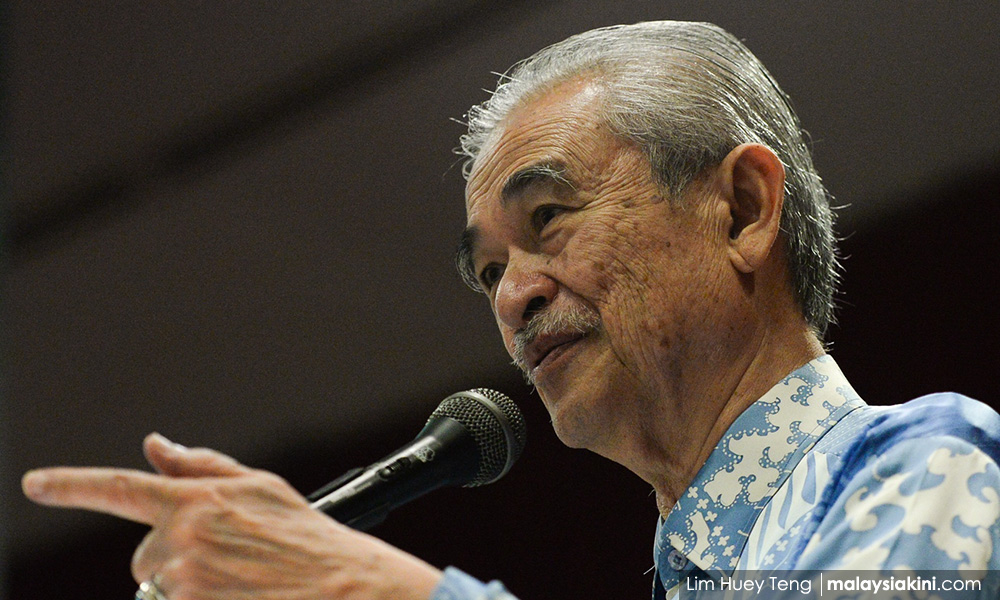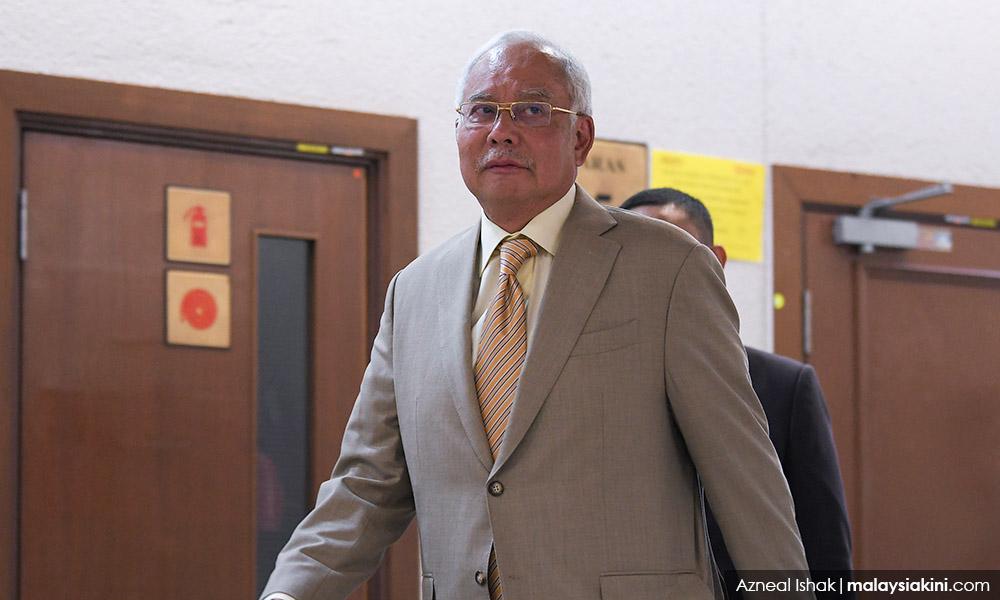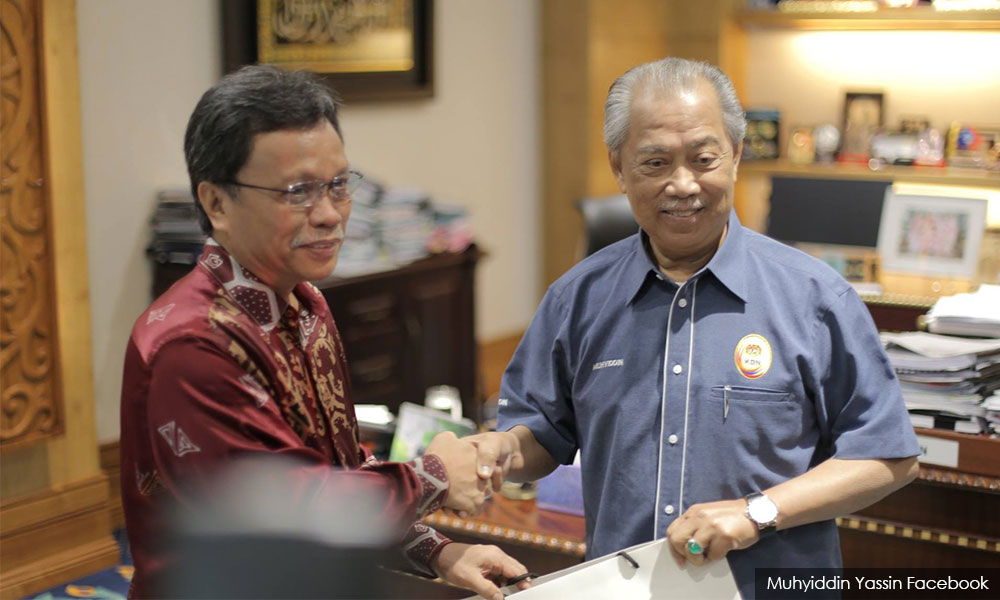
Soon after he took office as prime minister in 2003, Abdullah Ahmad Badawi (above) famously and gallantly exhorted Malaysians: “Work with me, not for me.”
That was a bout of fresh air from the new prime minister. I was delighted, too, that after 22 years of Dr Mahathir Mohamad, here was a new man with a more open and transparent style of leadership – a leader who wanted the people to work alongside him.
Pak Lah, as he is affectionately called, was known as a patient and caring man who had weathered many political storms to reach the country’s highest office.
Perhaps, members of Pak Lah’s cabinet from 2003 to 2009 should know best whether their boss was different from his predecessor in running the government and nation by wanting his ministers to “work with him”.
That would mean that he expected all his cabinet colleagues to speak up and tell him the hard truths, even if they hurt. That would mean pointing out the prime minister’s mistakes too, if necessary.
I have my doubts that was the case because if it were so, some of his ministers would not have been plotting Pak Lah’s downfall, backed by the retired but still influential Mahathir.
On hindsight, I believe many would have preferred Pak Lah to stay on longer had we known what was to come when his successor took over.
We could have been spared the agony and misery we are going through today. The national political and economic narrative would have been very different.
But we can’t turn back the clock, can we?

After Pak Lah’s fall from grace, Mahathir installed Najib Abdul Razak (above) on the throne. Of course, the sixth prime minister did not ask his ministers or the rakyat to work with him.
If that was a meaningless slogan, coined by Pak Lah to make himself and Malaysians feel good vibes at the start of his premiership, his successor fared far worse.
With the current 1MBD trial in full public glare, we now know that Najib’s closest aides and senior officers had adopted the “Don’t question PM” mode.
Yesterday’s testimony in the High Court from Amhari Effendi Nazaruddin, a former special officer to Najib, said it all.
No one in the Prime Minister's Office dared to ask Najib on the source of funds received by him when he was prime minister.
"Generally, I believe that the PMO officers had never and could not even ask Najib from where he received his funds, because this would be seen as having no confidence in his (Najib's) credibility," Amhari told the court in Kuala Lumpur.
Earlier, Amhari testified that his superior, the late Azlin Alias, had advised him to do what he was told if he did not want to lose his job.
This was despite the duo sensing that something was amiss in 1MDB.
If people, whom the boss meets daily, are fearful of even giving him a word of caution on his action that may not seem right, then there is doubt that the boss will listen to others outside his inner circle.
In the case of Amhari, it is clear that he chose to avoid any kind of catastrophe with his boss in order to keep his job and dignity intact.

We could probably understand how Amhari and Azlin felt in 2015 when Najib fired two of his senior cabinet colleagues, Muhyiddin Yassin (above, right) and Shafie Apdal (above, left).
The duo’s shocked sacking must have sent shivers down the spines of other ministers. So, if you want to keep your cabinet position and party posts, just adopt the “Don’t question PM” mode. It’s that simple!
With Pakatan Harapan in power today, is that mode in motion too?
Many are confused whether there is collective responsibility in the Mahathir cabinet today.
At times, we heard that certain decisions were made by the cabinet. Other times, the prime minister announced that he made the decisions himself. What about the views of other ministers who disagree with the prime minister’s unilateral decisions?
I believe that the majority of ministers would adopt the “Don’t question PM” stand for fear of losing their exalted positions, on the pretext of the importance of projecting a united cabinet front.
Understandably, obtaining consensus for every decision is a problem at times. But the more important point to consider is the promise of Harapan to curb the power of the prime minister, and that all major decisions be made with the consensus of Harapan partners.
Making unilateral decisions smacks of arrogance and total disregard of respect for the coalition partners. It is not wrong to state that Malaysians are worried that “one-man rule” has returned to haunt us, despite pledges before GE14 that it would not occur again.
Harapan must never forget why Malaysians decided to throw out the former prime minister. They were aware that the nation was going down the road to destruction with a hopelessly incompetent leader and his coterie of spineless ministers.
Bear in mind, too, that those who ignore history are bound to repeat it.
Harapan ministers must dare to be different from the previous BN cabinet and be prepared to work with their boss, and not for him.
This includes snapping out of the “Don’t question PM” mode for those who only think of working for Mahathir and not with him.
As German philosopher Friedrich Nietzsche said: “Sometimes, people don’t want to hear the truth because they don’t want their illusions destroyed.”
Harapan should do away with illusions and focus on visions.
FRANCIS PAUL SIAH heads the Movement for Change, Sarawak (MoCS) and can be reached at sirsiah@gmail.com - Mkini



No comments:
Post a Comment
Note: Only a member of this blog may post a comment.